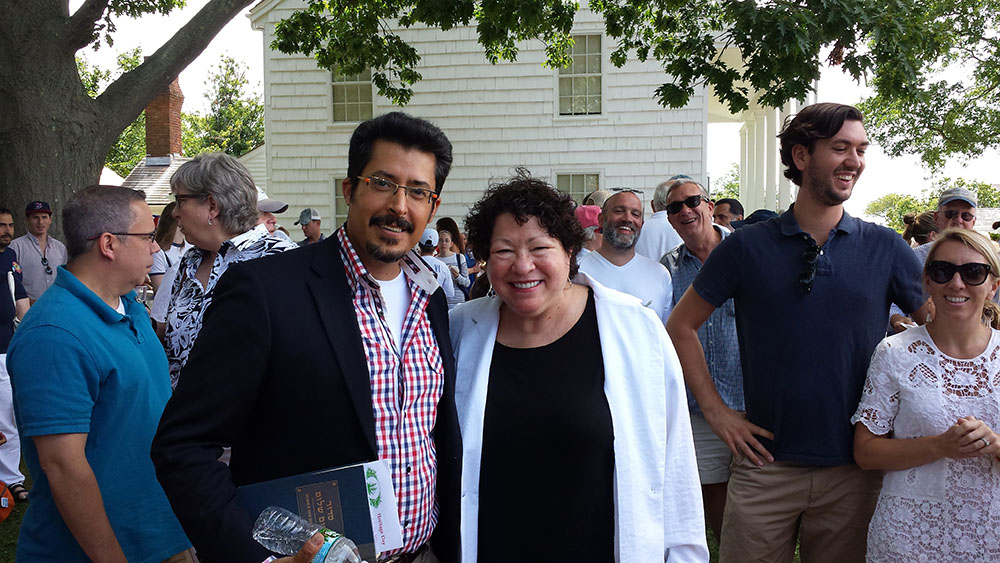Dear Members and Friends,
It was a great honor to share the stage with Supreme Court Justice Sonia Sotomayor at the Orient Annual Heritage Day on July 3. Her words, said on the little porch in front of the Old Point Schoolhouse on Village Lane, are still reverberating truth. The event took place shortly after last month’s vigils for the Orlando victims and before other terrible acts of hate occurred here in America and around the world. Speaking about America, Sotomayor said, “It’s not a perfect union yet.”
During my invocation, I mentioned that, for me, the United States is where different people come together to find a united cause. I also commemorated Dr. Elie Wiesel, who had passed away the previous day. For several years, I sat behind him at the Fifth Avenue Synagogue in Manhattan. Both of us being Levis, each year at the High Holidays, we would wash the hands of the Kohanim together. These were miraculous moments. I would think how amazing it was that we had come from different backgrounds, different generations, and yet we had come together, united in that place and time.
Wiesel, who died at the age of 87, was a Nobel Prize winner and a looming literary figure. He became a moral compass, one of the few people to keep the reality of the Holocaust a part of humanity’s collective memory. In one of his most famous speeches, he said: “The opposite of love is not hate; it is indifference. The opposite of art is not ugliness; it is indifference. The opposite of faith is not heresy; it is indifference. And the opposite of life is not death; it is indifference.” A result of hateful rhetoric against the Jews brought out the worst in many people — too many others were indifferent.
Recent events in this country and abroad, whether defined as terror or otherwise, were motivated by hate. Humanity still has a long way to go before we can once again call ourselves Adam — the one integrated human being, before he succumbed to the divisive cynicism of the serpent in the Garden of Eden.
All of this is magnified, of course, because we live in a time when we become immediately aware of events taking place around the entire globe. I often ask myself whether human beings are designed to know everything that is happening all over the world. As difficult as it is to process sometimes, I believe the answer is yes.
In the first chapter of Genesis, after God creates Adam — a male and female human being — He blesses them and says to them: “Be fruitful and multiply, and fill the earth…” Many commentators interpret this to mean to procreate and have as many children as possible. The Ramban takes a different approach. He says “to fill the earth” means to diversify, to divide into many nations in different parts of the world. Perhaps we could look at it another way. Could it mean that we should be aware of everything that is going on in the world. If this is the case, the world also fills us. In this relationship with the world, we decide how we let the world fill us and what rhetoric we fill ourselves with.
We have filled the world and diversified. We have also filled our awareness of the world through technology. In this time of political unrest in America and beyond, we need to be careful what we say. In this world, not knowing is not an option, and indifference is an option we can’t afford. The only option is to work on the imperfect union and try to become one Adam again.
God bless America.
—Rabbi Gadi Capela

Get Social